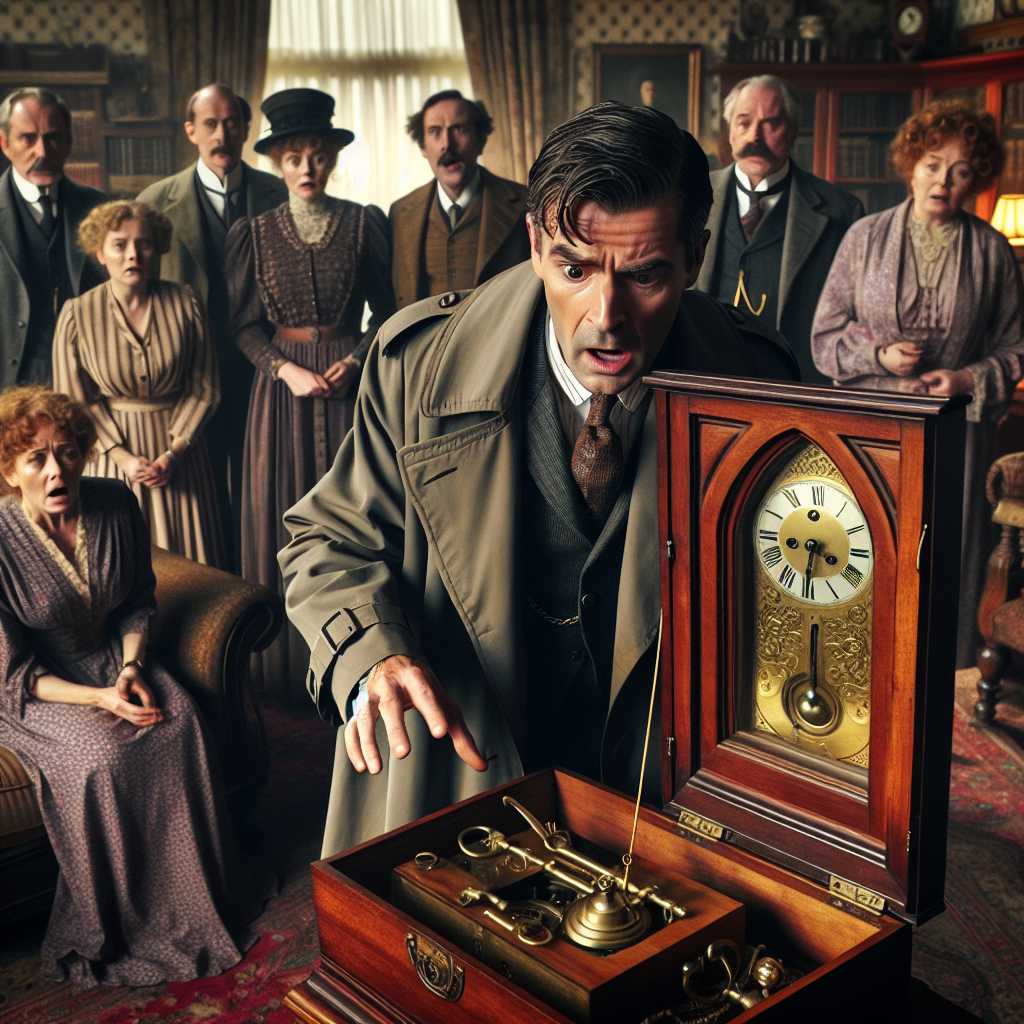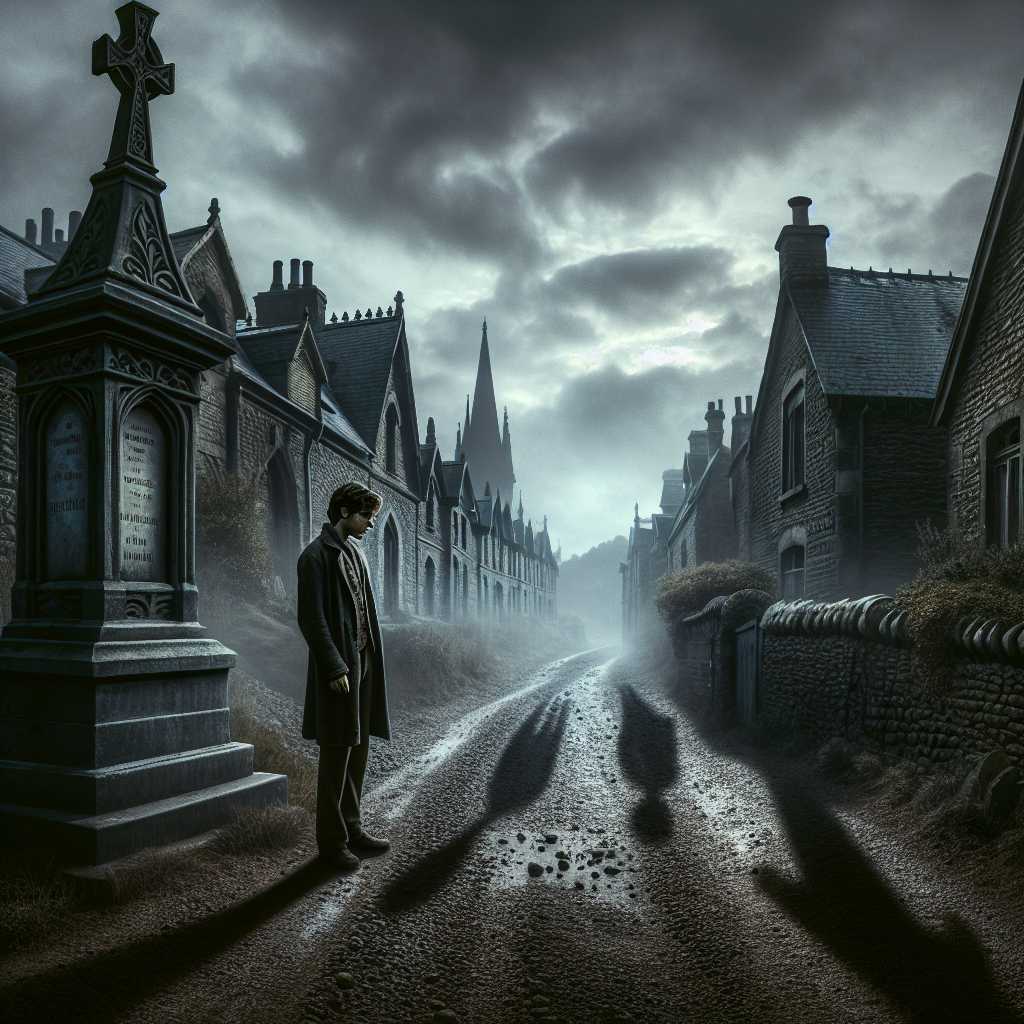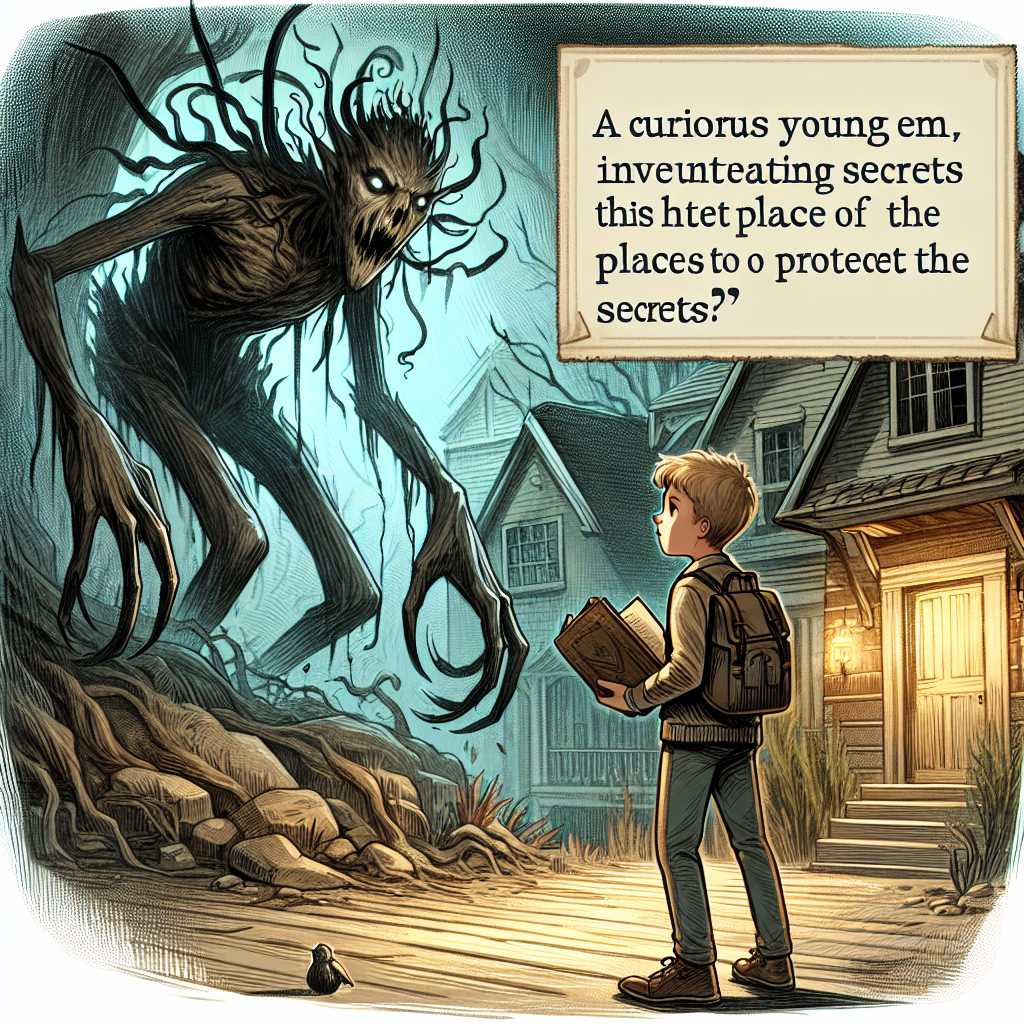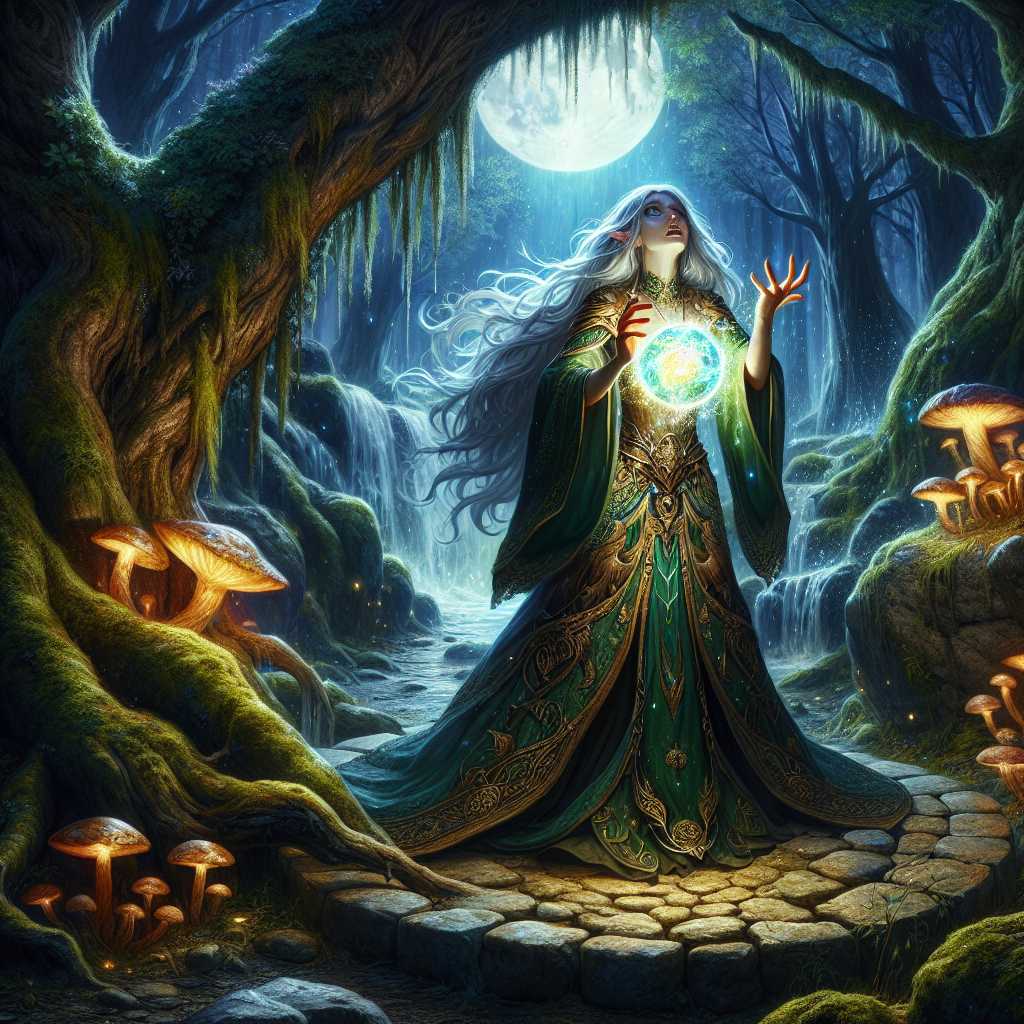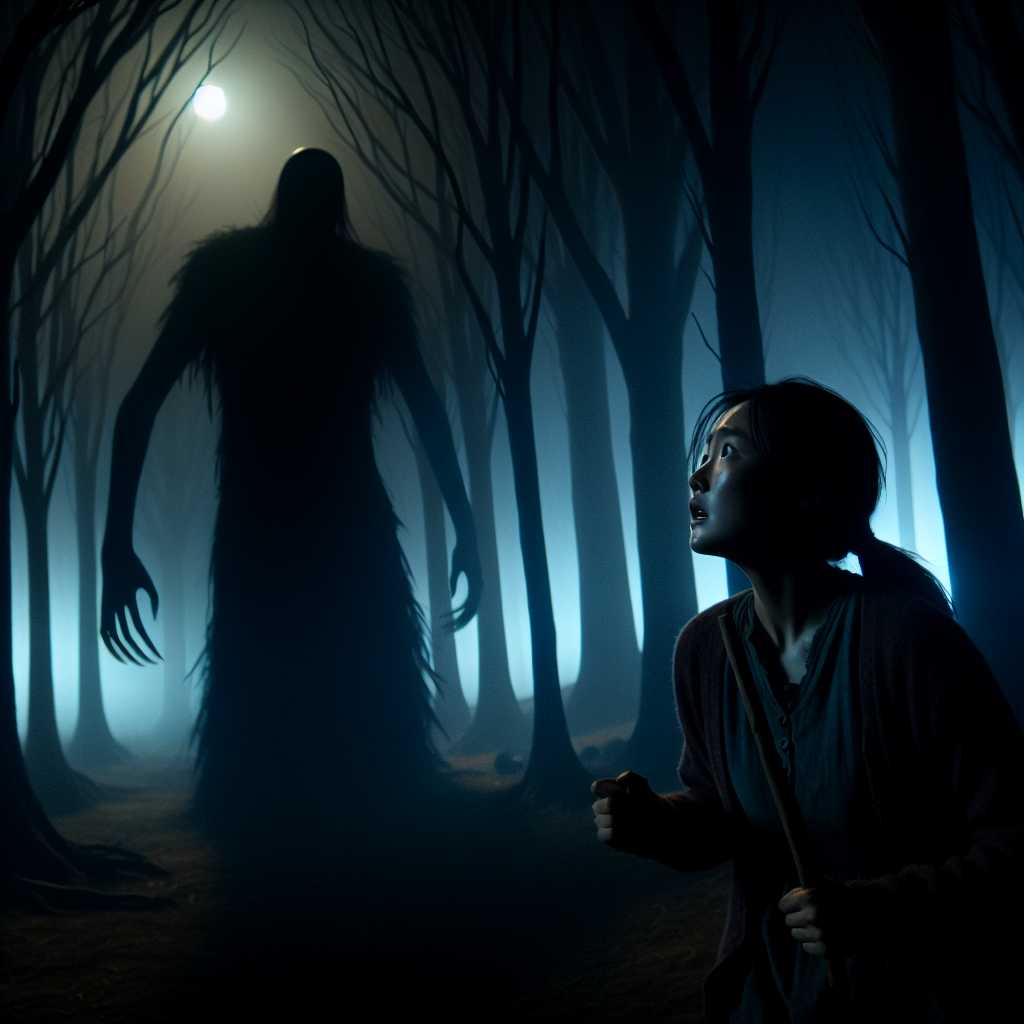
Wickerly was a town where everyone knew everyone, and secrets were as rare as a blossom in winter. It was a place where traditions were sacred, and the annual Founder's Festival was the crowning jewel. As the festival drew near, Clara's heart grew heavy, for it marked one year since her husband's tragic passing. He had perished in a fire that consumed the town's library, a place where he had worked as a beloved librarian.
However, grief was not the sole companion for Clara in her solitude. There was also guilt—a heavy, suffocating garment that she wore day in and day out. Whispers had begun to surface that the fire had not been an accident but the result of a quarrel between Clara and her late husband. The townsfolk spoke in hushed tones about the heated arguments heard from their cottage on the night before the tragedy, questioning the true nature of their relationship.
"You know, they say that Clara was the last to see him alive," murmured one townswoman to another as they drew water from the well.
Their gossip spread like the creeping ivy, leaving Clara isolated in a tower of suspicion. The only solace she found was in her son's innocent smile and the kindhearted attentions of a man named Mr. Ambrose, the local apothecary, whose gentle demeanor and quiet affection for Clara provided a cushion against the harsh whispers of the town.
One chilly evening, as the laughter from the Founder's Festival rehearsals trickled through the streets, a knock echoed through Clara's cottage. The visitor was none other than Ambrose, his hands clasped tightly in front of him as if they held his beating heart. Under the dim light of Clara's parlor, he confessed his love for her and his desire to help free her from the chains of her past.
"Clara, I've seen the way you carry this burden, and it pains me so," Ambrose said, the candlelight flickering in his earnest eyes. "Let me stand by you, let us face the townsfolk together and clear your name."
Although Clara's heart ached with longing for the comfort Ambrose offered, she knew that the darkness surrounding her husband's death was a shadow not easily dispelled. She pleaded with him to forget this folly, to save himself from the wreckage of her reputation. But Ambrose's resolve was firm; he would not abandon her to face this tempest alone.
With the festival only days away, Ambrose began his work. He visited the town's constable, Constable Hewitt, and together they poured over the evidence of the library fire. They discovered that the official report had been hastily concluded, with many questions left unanswered. Skeptical, Constable Hewitt agreed to reopen the investigation, providing Ambrose and Clara a flicker of hope—hope that was quickly noticed by the prying eyes of Wickerly.
News of Ambrose's quest traveled swiftly, and soon, Clara could sense a change in the air. Whispers that once spoke of doubt now carried curious murmurs of intrigue. The town's perception of Clara was shifting, and there was a collective holding of breath as everyone awaited the unveiling of the truth.
The evening of the Founder's Festival arrived—all of Wickerly donned in color and cheer, a stark contrast to Clara, who felt a storm brewing within her soul. The festival green was alight with torches and merry faces, but amidst the crowd, Clara saw Constable Hewitt urgently making his way towards her and Ambrose.
He came bearing news that would shatter the quiet night: the fire was no accident. Indeed, it had been caused by an old electrical fault in the library's outdated system—the very concern her husband had voiced to the council, only to be ignored due to lack of funds. Clara's husband had died a hero, trying to salvage what books he could before being overcome by the flames.
The revelation rocked the townsfolk to their core; guilt painted their faces gloomier than the darkening sky above. Soon, apologies were offered to Clara, each more fervent than the last. Clara, with Ambrose at her side, watched as her name was cleansed in the communal baptism of the town's remorse.
That night, Clara's heart, once entombed in sorrow, was set free. As the festival fires glowed, she and Ambrose danced amidst a people united by truth and reconciliation. Eli's laughter mingled with the music, and Clara knew that her husband's memory had been honored.
And so it happened that through the determination of one man and the resilience of a wrongly accused woman, the town of Wickerly learned a valuable lesson. It is through understanding and compassion that we untangle the webs of suspicion and weave together the threads of a stronger community, a place where love can triumph over the darkest tragedies.
And thus, under the moonlit sky, Clara's drama found its denouement—not in the solitude of a quiet life, but in the embrace of a town that had found its way back to her.



